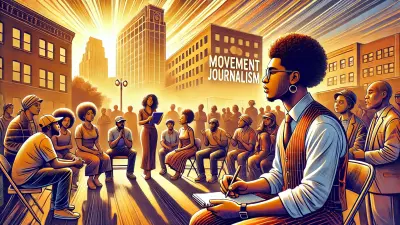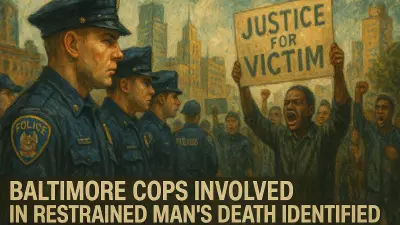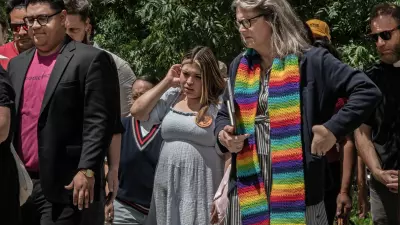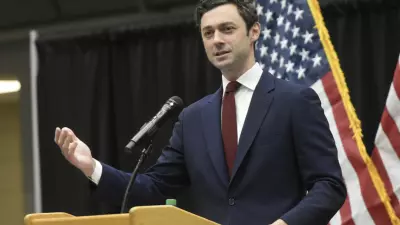For almost eight years, the nonprofit news outlet MLK50 has told stories that shine a bright light on systemic injustices. Dr. King would be proud of their efforts.

In June 2020, I watched my son graduate from high school as he sat in an office, staring at a computer screen.
It was the height of America’s collective pandemic-driven virtual reality. As I stood behind him, I was proud of what he had accomplished. Yet I was also a little sad. The world he was inheriting seemed awful. He’d lived through hundreds of mass shootings. He sat by my side and watched as the man who killed Trayvon Martin was acquitted — and there were so many other Black males, killed by state agents, before George Floyd’s death, not a month earlier.
My generation, I thought, hadn’t done enough to make the world better. At the time, I had a good job doing what I love: writing and editing. But the truth was I had been sitting on the sidelines. I needed to be involved.
When I left my journalism career in 2013, I was fleeing a profession that seemed to be dying. There were rolling layoffs; the papers were thin. What I didn’t realize was that it was breaking down to become something new, and eight years later, I could be a part of that. A friend sent me an ad for the executive editor position at MLK50: Justice Through Journalism, based in Memphis, Tennessee.
MLK50 felt like destiny; it was exactly what I needed. The site was founded by Wendi C. Thomas, a veteran of legacy papers who wanted to explore what Memphis, and what the country, had done with Dr. Martin Luther King Jr’s sacrifice after he was assassinated in the city. It was supposed to be a one-year project but Thomas had a greater vision. Some thought a nonprofit digital news site couldn’t make it in a low-wealth, majority-Black city. MLK50 turns eight on April 4.
We report through the prism of power, policy, and poverty. And, we report for the people Dr. King came to Memphis to serve: workers. Our journalism is modeled after the work of Ida B. Wells-Barnett, the brave reporter who ran a paper called the Free Speech in Memphis. Three friends of Wells were lynched by a white mob for running a successful grocery store. Wells channeled her fury and pain into writing about lynching; her offices were destroyed by white men, and she was angry that she used her voice to highlight injustice and racism.
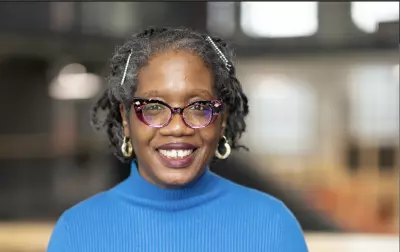
Co-Executive Director, Editorial of MLK50: Justice Through Journalism Adrienne Johnson
Our approach to work is often called movement journalism. That means our reporting starts from the community rather than from institutions. Community engagement is central to what we do. It means that our work’s goal is liberation; we want to change policies and practices that keep people poor. We are rigorous and fair in our reporting, aiming never to be extractive of Memphians.
It’s funny to me that our work is often seen as advocacy or activism. When people say that, I sometimes ask them why they think the journalism they know isn’t advocating for something.
I recall one of the adages I learned as a young journalist: If your mother says she loves you, check it out! That was meant to convey the kind of skepticism reporters were meant to carry into their work at all times.
Yet I was also taught that police reports were officially trusted documents; what a police officer wrote there was the truth, which meant the community member who said something different was suspect.
That’s a contradiction in a profession that is supposed to be skeptical and “objective.” And it was painful, too. I had to bury what I knew to be true, what I experienced as a Black woman from the Bronx — sometimes, police lie. Not particularly because they are police, but absolutely because they are people.
Movement journalism leans into humanity, rather than flattening it. It interrogates power wherever it lives. (And that includes in the press; we have to be mindful of our accountability too!) Who holds the power shifts, and its wielding is often nuanced.
We have to bring context and history to our work while being accessible. Especially in these times, those standards make fighting misinformation inherent to our work. It also challenges America to embrace true democracy, as Dr. King did.
The goal is for readers to find themselves in our journalism and to find their power. Being a movement journalist means embracing what legacy journalism has aspired to be and unlearning what it has taught those of us who practiced it.
Nearly four years in, I returned to a renewed and recommitted journalism. MLK50 helps the Memphis community imagine and strive for a world that’s more just, the world I wanted my son to inherit.
We’re not there yet, but it’s gratifying to participate in the work with my colleagues every day.
Adrienne Johnson Martin is the co-executive director, editorial of MLK50: Justice Through Journalism. Previously, she worked at the Los Angeles Times, the News & Observer in Raleigh, North Carolina and Duke University.

